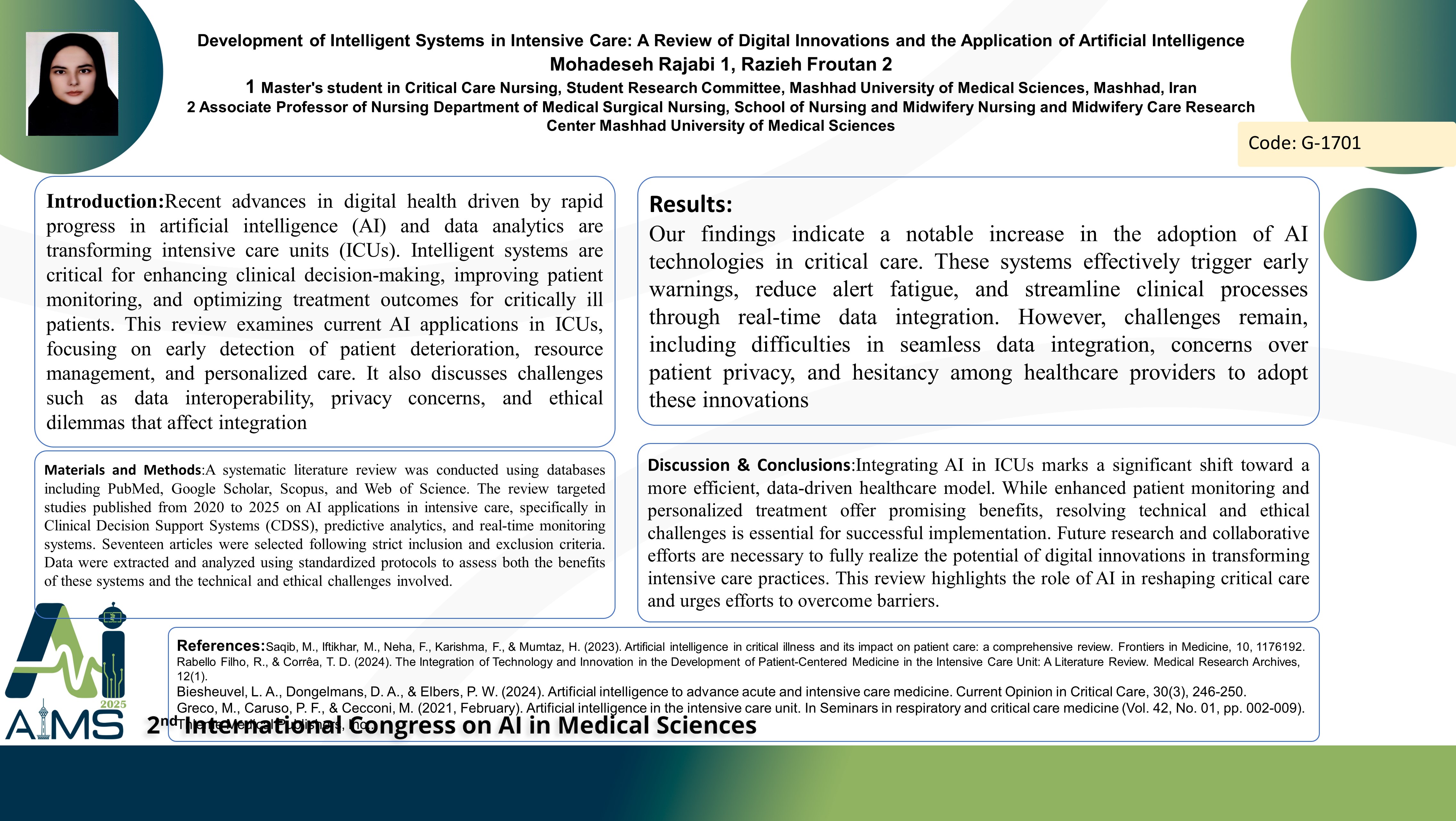Development of Intelligent Systems in Intensive Care: A Review of Digital Innovations and the Application of Artificial Intelligence
Code: G-1701
Authors: Mohadeseh Rajabi * ℗, Razieh Froutan
Schedule: Not Scheduled!
Tag: Clinical Decision Support System
Download: Download Poster
Abstract:
Abstract
Background and aims: Recent advances in digital health driven by rapid progress in artificial intelligence (AI) and data analytics are transforming intensive care units (ICUs). Intelligent systems are critical for enhancing clinical decision-making, improving patient monitoring, and optimizing treatment outcomes for critically ill patients. This review examines current AI applications in ICUs, focusing on early detection of patient deterioration, resource management, and personalized care. It also discusses challenges such as data interoperability, privacy concerns, and ethical dilemmas that affect integration. Method: A systematic literature review was conducted using databases including PubMed, Google Scholar, Scopus, and Web of Science. The review targeted studies published from 2020 to 2025 on AI applications in intensive care, specifically in Clinical Decision Support Systems (CDSS), predictive analytics, and real-time monitoring systems. Seventeen articles were selected following strict inclusion and exclusion criteria. Data were extracted and analyzed using standardized protocols to assess both the benefits of these systems and the technical and ethical challenges involved. Results: Our findings indicate a notable increase in the adoption of AI technologies in critical care. These systems effectively trigger early warnings, reduce alert fatigue, and streamline clinical processes through real-time data integration. However, challenges remain, including difficulties in seamless data integration, concerns over patient privacy, and hesitancy among healthcare providers to adopt these innovations. Conclusion: Integrating AI in ICUs marks a significant shift toward a more efficient, data-driven healthcare model. While enhanced patient monitoring and personalized treatment offer promising benefits, resolving technical and ethical challenges is essential for successful implementation. Future research and collaborative efforts are necessary to fully realize the potential of digital innovations in transforming intensive care practices. This review highlights the role of AI in reshaping critical care and urges efforts to overcome barriers.
Keywords
Artificial Intelligence, Intensive Care, Digital Health
